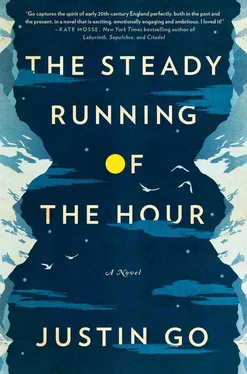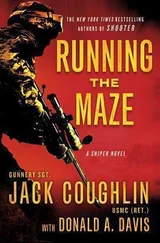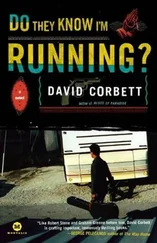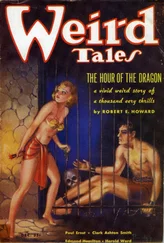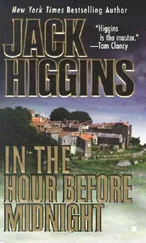So chiefly Eleanor painted, working all morning in the old barn she had turned into a studio. Before the sisters’ arrival, a wood-burning stove had been installed in the barn under Mrs. Hasslo’s direction, and a large easel ordered up from Stockholm had awaited Eleanor in its packing case. Every day now she painted through the frigid morning with two shawls wrapped around her and a thick blanket spotted with varicolored oil paint. Even with the stove burning continuously it was impossible to warm the entire barn.
Eleanor had brought from London a few canvases that had been troubling her, but so far she had not worked on these, for she was flush with fresh subjects. Since arriving in Leksand, Eleanor had painted two views of the cottage whose blood-red hue so intrigued her; an ironic portrait of Mrs. Hasslo as a peasant woman; a series of sketches detailing Imogen’s transformation into motherhood, a subject that captivated Eleanor, who had never been able to imagine her sister with child. For weeks Imogen had refused to pose nude, until one afternoon she had come into the studio and begun undressing without a word. Eleanor must have fed fifty logs into the stove that day, until the rafters above were thick with curling smoke, but still Imogen shivered in her sitting pose, balling her fingers, her skin seeming to acquire a faint bluish pallor that crescendoed in her verglas eyes. In hours of posing Imogen never complained. The resulting drawings were mesmerizing, magnetic in their peculiar charms: a pregnant girl with arms and legs crossed tightly, uneasy in her own skin, her guarded face awaiting this descending miracle or catastrophe. Eleanor prized these as she had never prized any sketches, if only because she knew she must destroy them one day. But she had not destroyed them yet.

On this morning Eleanor lingers in Imogen’s room a moment longer, noticing the tiny drifts of dust collected in the porous woodgrain along the floor. She drags an inquiring finger into a crevice. It comes up gray. She will clean it this afternoon.
Eleanor pours a glass of water from a pitcher and sets it on Imogen’s nightstand; they have ordered a bed table from Stockholm, but it has not come yet. Imogen stirs in bed.
— Why on earth, Imogen murmurs, must you rise so early?
— I don’t know. I suppose we’re bred to live up here.
— Half-bred.
— And you’ve the wrong half, Eleanor teases. Are you feeling poorly?
Imogen turns her head, but she does not answer. Eleanor kisses her sister’s forehead and descends the stairs with heavy steps, her tactful method of waking Mrs. Hasslo, who otherwise might drowse on until nine. Imogen stuffs another pillow beneath her head. Under the sheets she rests her hands upon her stomach, as she often does now, sizing with cupped fingers the swelling that always feels larger than its appearance to the naked eye.
She should never have come to Sweden, Imogen reflects. She should have done anything but this. She might have married Ashley and kept the child for herself; she might have followed him rather than her family. It would have meant sacrificing her pride and having a different life than she had imagined, but in doing so she would have kept the two things that mattered most, Ashley and her child, at least as long as Ashley lived.
But Imogen could not have stood this. The days and weeks of waiting had grown intolerable even before Ashley was wounded, and the news of his death had ground her nerves to nothing. By the time she boarded the ferry to France, Imogen was in a state of constant dread even though she knew he was safely in a hospital. And soon Ashley would go back to the front. Imogen could not bear the thought of it, not one more week of that boundless terror, let alone months or years. The child would only make things worse, for Imogen remained convinced that it would grow up without a father. She had given Ashley a choice and he had chosen the war.
But had they truly made choices, or had they only given in to forces they felt too weak to resist? Imogen remembers the night at the YWCA, walking back to Cavendish Square and telling her mother she would go to Sweden. In doing this she had chosen, or believed she had chosen, the child’s happiness above her own. She had done the right thing. And yet it did not feel right at all. For it was at that moment, Imogen now recognizes, that she had surrendered control of her life and left others to pilot the vessel, or let it be guided entirely by the chance swelling of the waves.
Imogen sits up in bed and sips from the glass of water on the nightstand. She senses the letters within the drawer, the newest of them only ten days old. Imogen had conspired with the parlormaid to forward the letters in packets with her other correspondence. If Eleanor suspects anything, she never speaks of it.
Imogen finds the letters dreadful. Ashley had written to her from the convalescent hospital at Étaples, then from his billet at La Calotterie. He spares nothing in recounting every sinew of his devotion to her. Occasionally he talks of his responsibility to his men, but he never mentions their quarrel. Even now he writes every few days, though he has had no word from her since they parted in the Somme five weeks ago.
For God’s sake answer me, darling , he writes. Send me a sign of rejection, even, that I shall know you are well and have decided against me.
Ashley inquires not only of her, but of the growth of their child; he claims he will be the most loving of fathers, that he will do everything he can for Imogen and for their family. He asks nothing of her save a second chance.
You ask so much , she thinks. You haven’t any idea what you ask for.

It begins to snow in the night. Mrs. Hasslo cooks pea soup for dinner, but there is no pork in it, for there was no meat of any kind when she went to the grocer yesterday, only the same canned herring that both sisters now flatly refuse. The three women eat in silence. Suddenly Mrs. Hasslo remarks that the lake seems frozen hard. Imogen spoons more mustard into her soup, looking up at Eleanor.
— What are skridskor ?
— Ice skates. She means we could ice-skate soon—
— Not I.
Imogen takes a bite of a hard rye cracker. Mrs. Hasslo asks if they want pancakes for dessert, for she has plenty of flour and Imogen must eat more for the child’s sake, even if she isn’t feeling well. Imogen smiles apologetically and says perhaps they should have pancakes tomorrow.
Mrs. Hasslo clears the table and goes to bed. Imogen fetches her crochet hook and the blue afghan she has been working on for weeks. Twice already she has sent Mrs. Hasslo into town to order more yarn, but rationing in Sweden is growing stricter every day and when the yarn arrived yesterday its color was different from the original, more navy than indigo, and not quite as thick. Imogen went on using it anyway.
Eleanor picks up a broom and begins to sweep. She glances at the afghan and smiles.
— It’s coming along quite nicely. One doesn’t mind the color difference. In fact I rather like it. It’s treble-stitched?
Imogen does not look up from her crochet hook.
— Double treble.
— By the time you finish, it’ll keep an elephant or two warm. Or possibly a dreadnought. Imagine all those gallant Swedish merchant captains dodging U-boats to bring you indigo yarn.
— Better cargo than bombs.
Eleanor yawns. — Indeed. Darling, I’m off to bed, I’m simply exhausted. Perhaps you ought to come upstairs as well. You could use the rest—
Imogen looks at Eleanor. The bone crochet hook is fixed motionless in her hand.
Читать дальше
